About a week ago, I spent a some time on the Mendocino coast with Maddie and her family. We were tucked into a quiet house between the redwoods and the Pacific with near-zero cell service. I left my computer at home and packed my bags with nothing but the essentials. For four days, our world shrunk in the best possible way. No feeds. No notifications. Just books, shared meals, card games, and the kind of long conversations that don’t get cut short by a buzzing phone.
I brought my Fuji and my Mamiya with a roll of Portra 400, nothing too precious, and I made time to shoot each day we were there. I began by documenting the simple details— a bit of morning fog over an old bridge, Maddie wrapped up in her blanket with coffee in hand, a wave rolling over the rocks on a soft sunset, the types of things film seemed to be made for.
What struck me, more than anything, was how quiet my brain felt. Not quiet in the sense of being totally empty, but quiet in that I wasn’t thinking about what I was missing from my life in Seattle (other than our two kittens that we admittedly missed very much). I wasn’t reaching for my phone, I wasn’t curating anything, I was just watching people be people—tired, silly, present—and feeling lucky to be there with them.
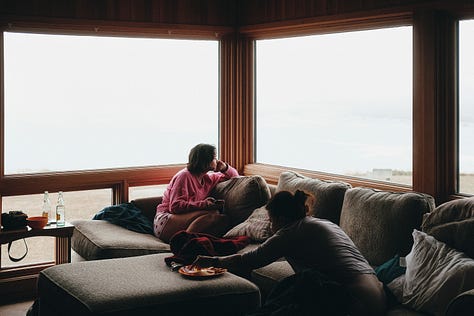
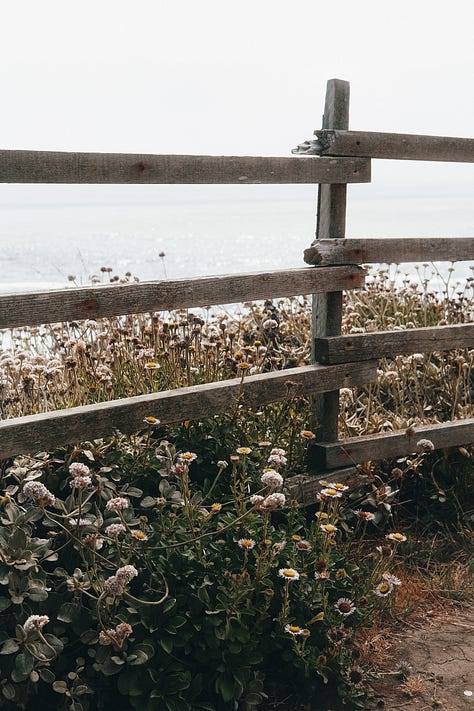
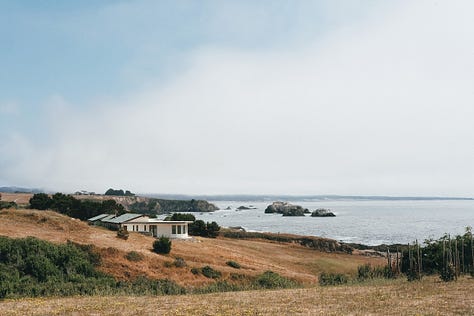
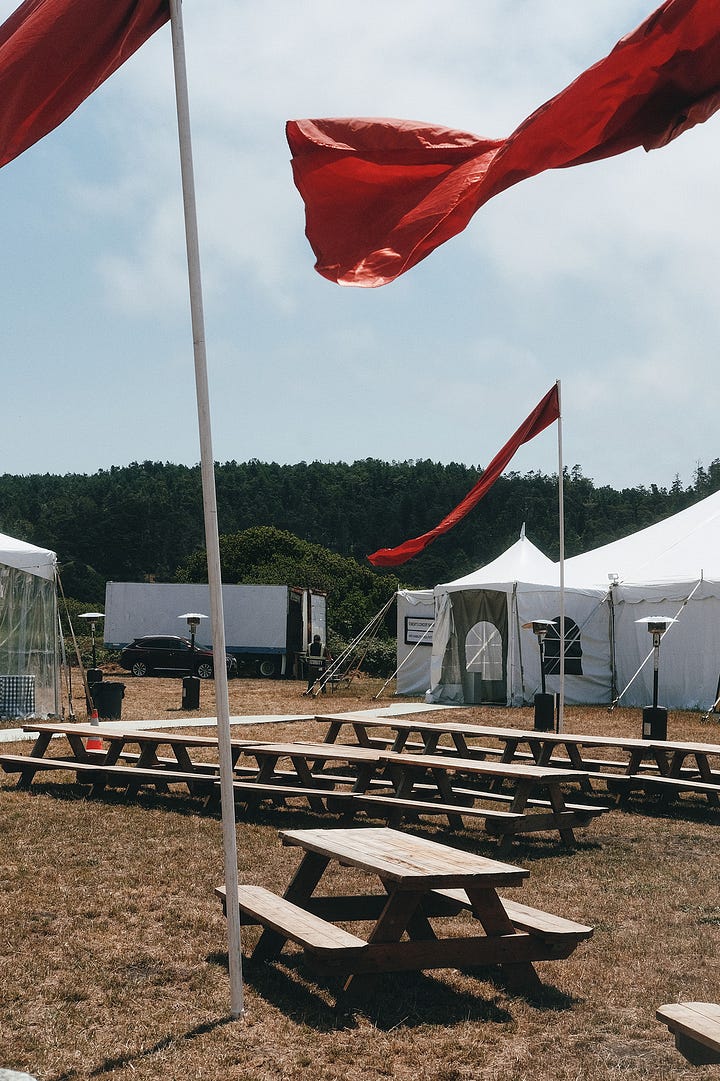
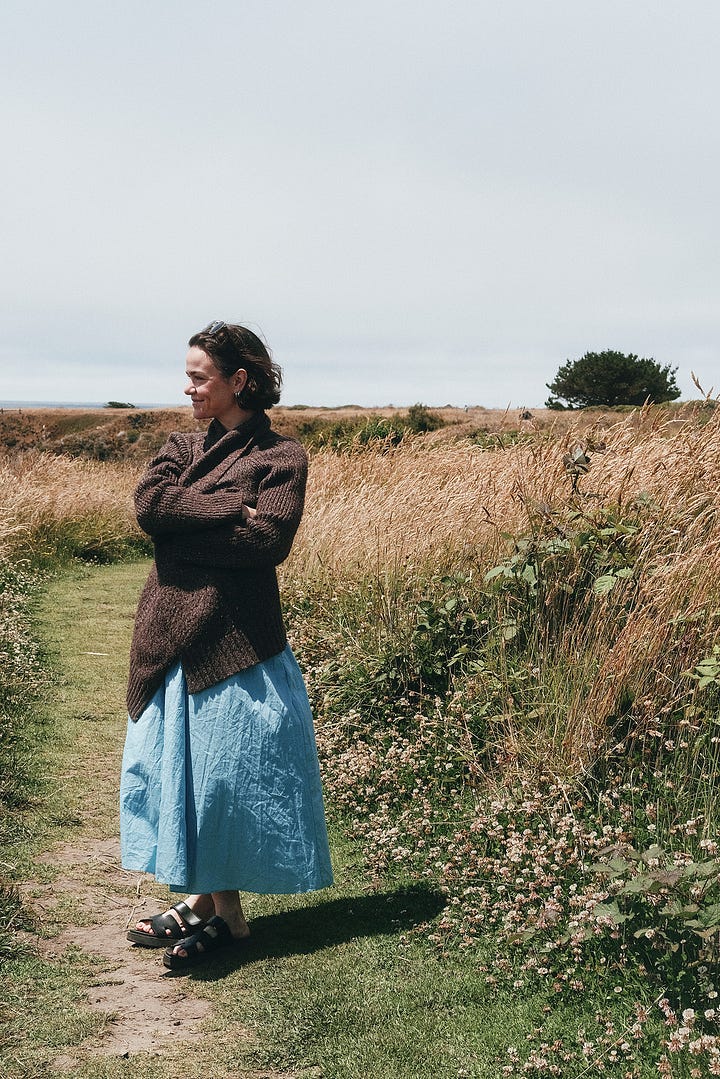
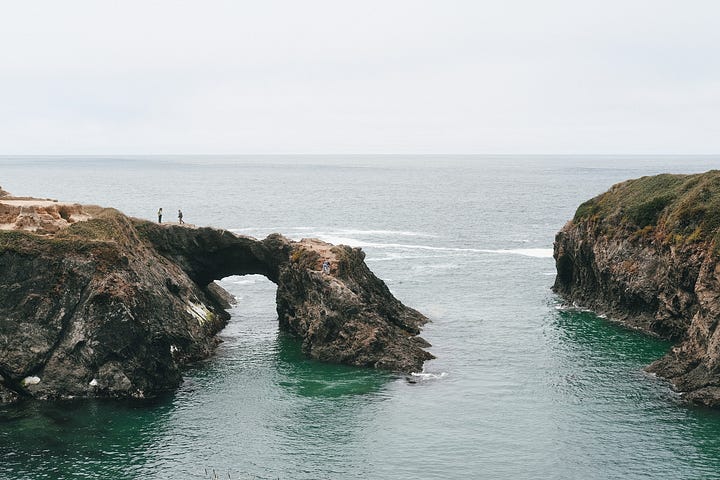
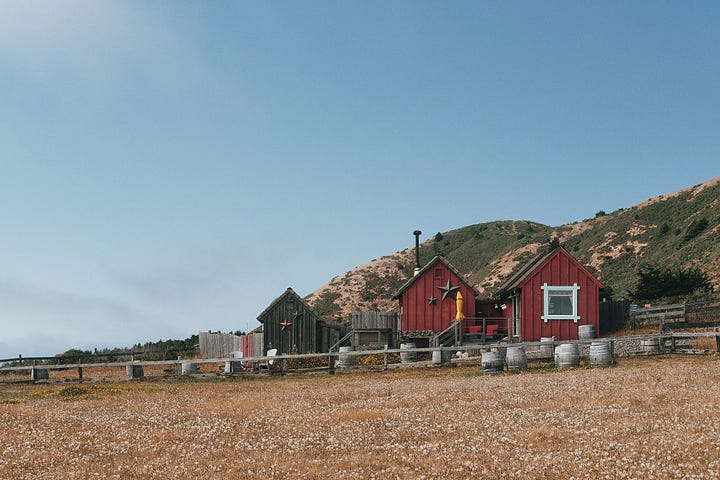
It made me realize how much the internet has kind of rewired us to always be expecting something. There’s this constant low-level hum of “what’s next?”—what’s new, what’s trending, who liked that thing I just posted. We always seem to be in motion, but it’s not the kind that actually gets us anywhere, like being on a treadmill.
Lately I’ve been a little obsessed with this idea called the “Dead Internet Theory” If you’re unfamiliar, it’s basically the belief that much of the internet as we experience it now is almost entirely populated with bots and AI and the interactions we have as people are becoming increasingly automated. Whether or not that’s literally true isn’t really the point. What’s resonated with me is the feeling behind it, that what used to feel alive and exciting now often feels flat, impersonal, and weirdly predictable, like the soul has been drained out of the digital spaces we once loved.
It’s no surprise, really. Platforms that were built for creativity and community have become optimized for profit and engagement. Algorithms decide what we see based on what keeps us scrolling, not what actually means something to us. It’s why everything feels so reactive. We’re deep in the attention economy, and these compaines desperately want our most valuable resource— time.
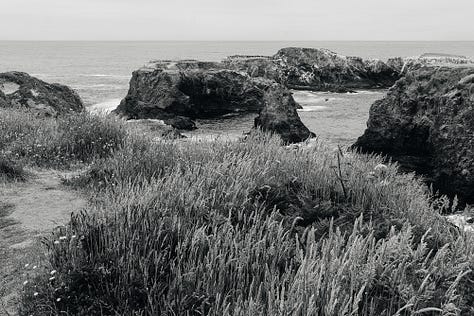
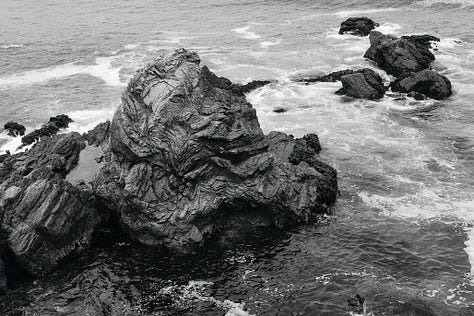
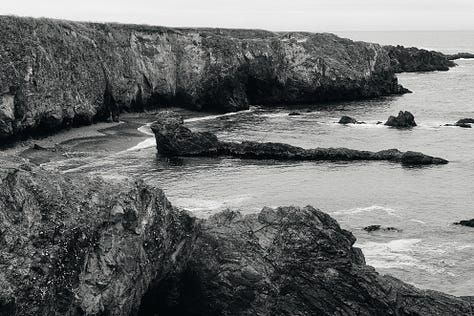
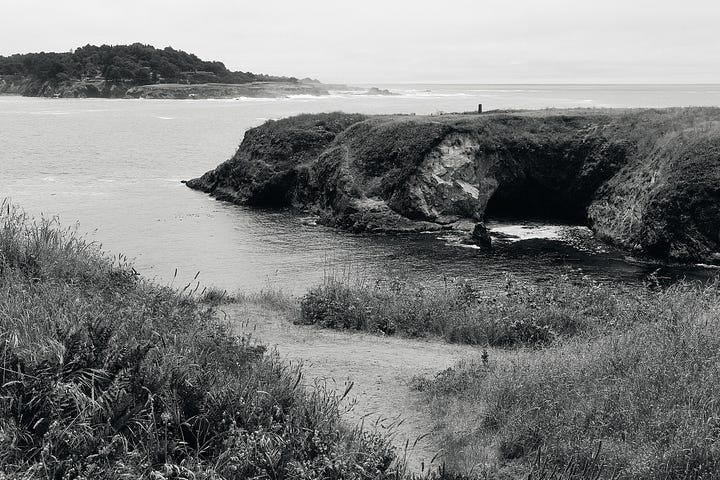
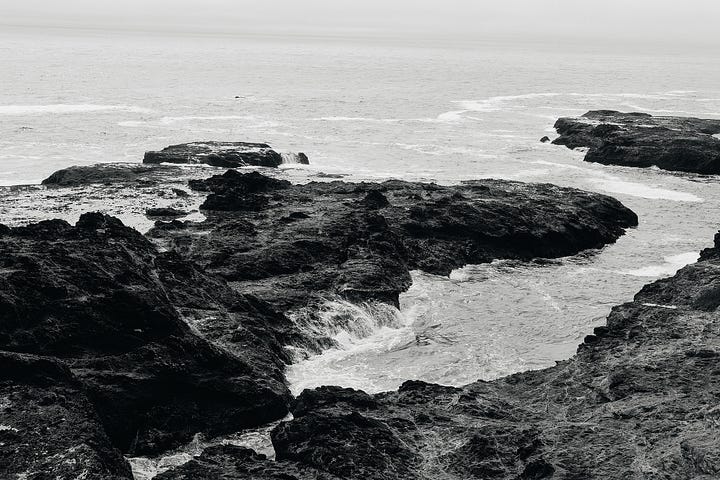
I think that’s why I’ve been reaching for more physical ways to interact with life these last several years. A lot of the things I talk about on this blog such as shooting film, scribbling in my notebooks, or putting on a record and letting the whole thing play (even the songs I’d probably skip if I was streaming) help me achieve that feeling of connectivity with what I’m engaged in. It’s not about being “offline” or trying make a point, I think it just helps me remember that I have a body, that I’m here. There’s something calming about it, having less noise. I don’t know if that’s mindfulness or maybe I’m just getting older. Perhaps it’s both. But it feels good to not always be chasing the next thing. Sometimes it’s enough to just be where you are and let that be the whole point.
During that Mendocino trip, I kept thinking about how different it felt to document something without the expectation of sharing it right away (or maybe at all). No likes, no comments, just moments I didn’t want to forget. I’ve always loved that film delays the gratification. You don’t get to know if the shot worked until much later. And in that delay, something happens: you remember the feeling more than the frame. It becomes a memory instead of a post.
And when you do finally develop the roll or revisit those saved frames, there's a particular kind of magic in it, like opening a time capsule. The colors might be softer than you remember, the edges a little blurred, but the feeling rushes back whole. Looking at old photos has a way of collapsing time; you don’t just see what happened, you feel who you were. You remember small details that faded into the recesses of your mind— The way someone laughed in the background, the shoes you wore into the ground that summer, the way the morning light fell across a wooden table. It’s that type of romance that keeps me coming back to the camera again and again and again.
The images I have here in this post are all actually from my digital camera, a tool that is truly just as capable of capturing that feeling of a physical medium as an analog camera. In theme with my writing today, I wanted to wait a bit longer to process my roll of film from this trip so I could maximize the excitement of revisiting this magical place with you all a second time. So, be on the lookout for that in the coming weeks!
I’m not anti-internet. There’s still so much beauty to be found online, and connection, and learning, too. But I do think we’re overdue a cultural shift—something slower, more tactile, more grounded in shared experience—A quiet rebellion against the always-on, everything-now mentality. Maybe it starts with things like this: a few days offline, a roll of film, and the reminder that not everything needs to be captured perfectly to be worth remembering.
So, here’s to the imperfect, the unposted moments: the ones that linger longer than an algorithm ever could.
See you next week!







mendo!!!